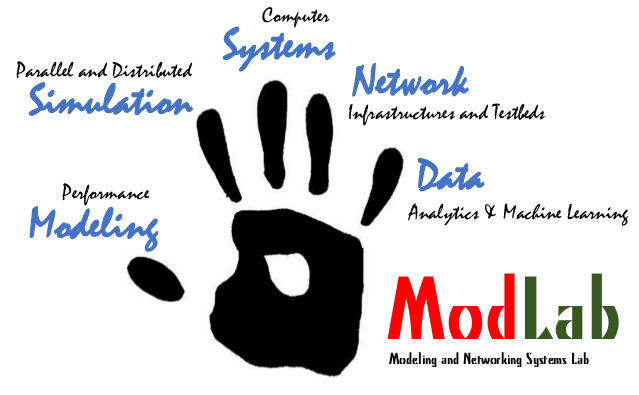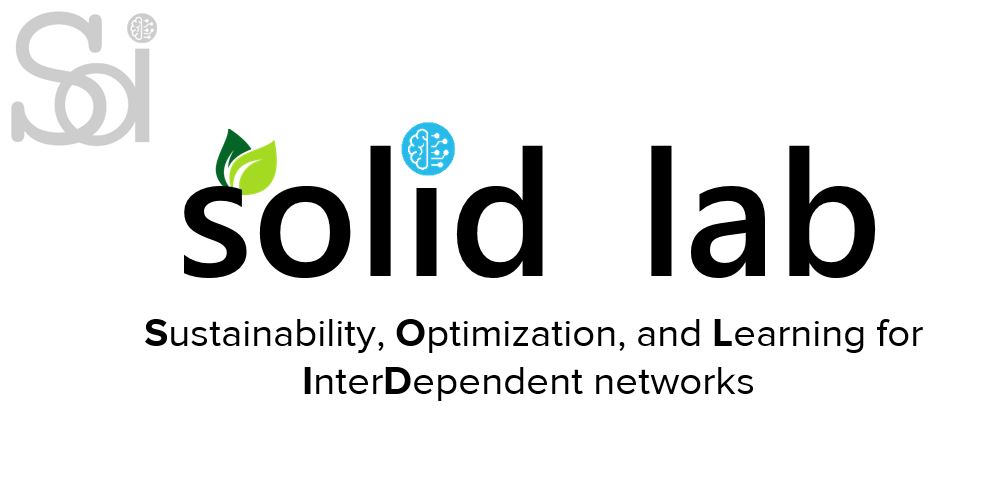Research
Leading REsearch Through Innovation
Our faculty is pursuing a diverse collection of research opportunities whose goals are the advancement of the computer science field of study, IT industry collaboration including technology transfer, and the pursuit of important societal problems faced by our many public and private sector partners. Our approach has also grown from traditional computer science themes such as algorithmic analysis and computer language development to one which embraces the integration of computing in fields like computational sciences, bioinformatics, disaster management, Geographical Information Systems, as well as cutting-edge technology topics like cloud computing, social networks, cybersecurity, and highly reliable systems. Our research community firmly believes in a multi-disciplinary approach to solving both theoretical and applied computing problems.
Faculty
Our School has reached a high sustained level of research and scholarly activity and is now taking the next step towards prominence by competing for and winning very prestigious national and international awards, and in recruiting outstanding faculty.
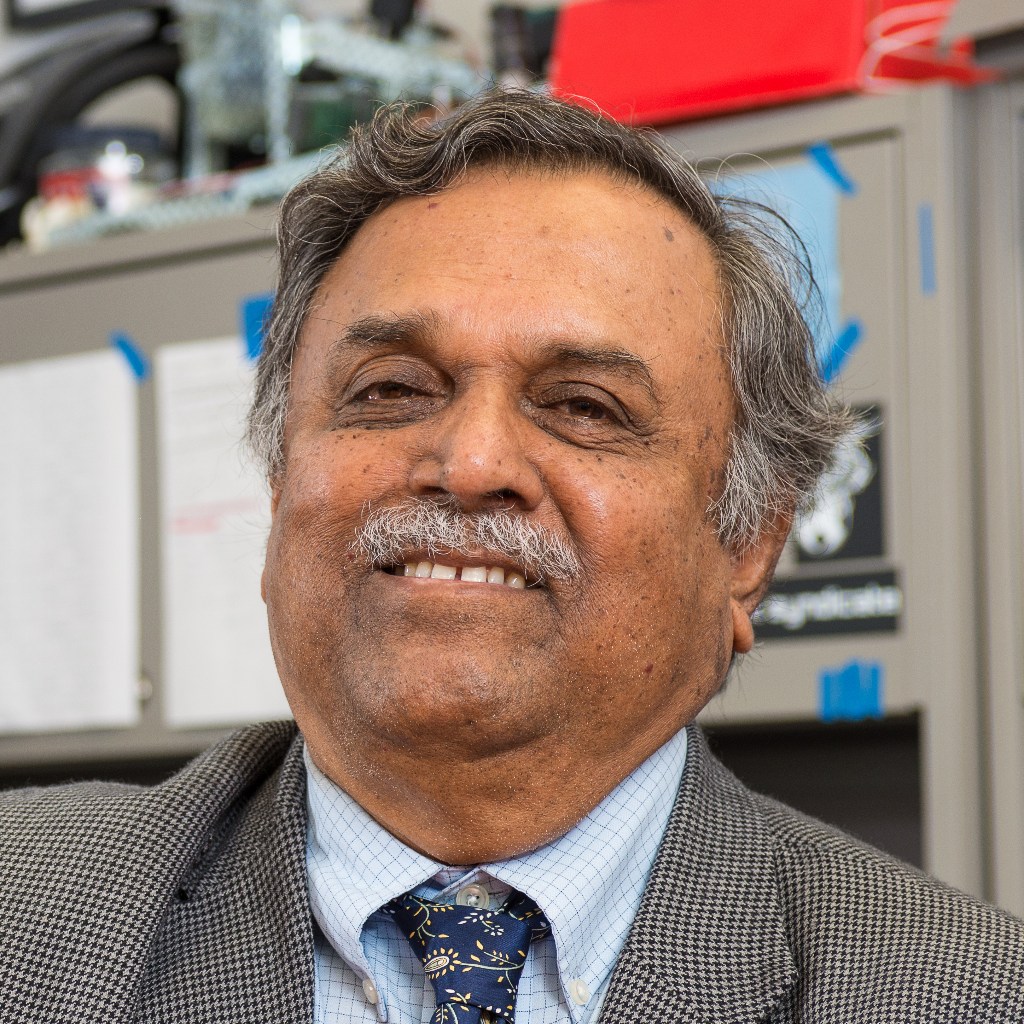
Dr. S.S. Iyengar is the Distinguished University Professor, Ryder Professor in the Knight Foundation School of Computing and Information Sciences at Florida International University, Miami. He was honored by the Institute of Electrical and Electronics Engineers’ (IEEE) in July 2019, where he received the Outstanding Research Award known as the “Test of Time Award” for his work in creating the Brooks-Iyengar Algorithm. Iyengar created the Brooks-Iyengar Algorithm in 1996 along with his student, Richard Brooks who is now a Professor of Electrical and Computer Engineering at Clemson University. Since its creation, the algorithm has been incorporated into a variety of systems across the world. The algorithm was incorporated in new versions of real-time extensions to the Linux Operating System, in particular in RT Linux and MINIX. In 2015 researchers proposed and incorporated a robust fault-tolerant railway door opening and monitoring system for use in transportation, providing accurate automatic opening and closing with minimum traction through the fusion of sensor inputs. Most recently, the system has been applied in social networks such as identifying and tracking influential nodes and eliminating false information to obtain more accurate predictive results. His system was incorporated in several projection models for the presidential election in 2016, which accurately predicted the upset for Hillary Clinton, despite more conventional models which gave her an 80% chance of winning.
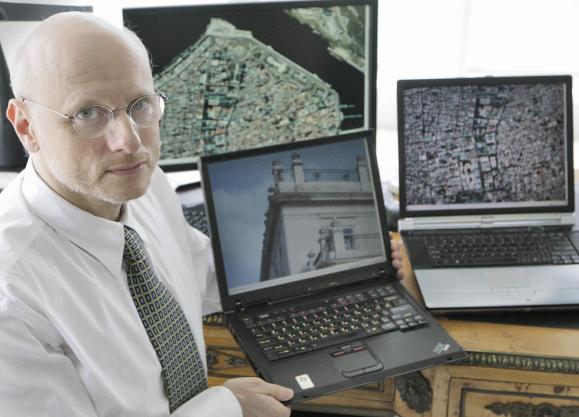
TerraFly is a technology and tools for visualization and querying of geospatial data. The visualization component of the system provides users with the experience of virtual “flight” over maps comprised of aerial and satellite imagery overlaid with geo-referenced data. The data drilling and querying component of the system allows the users to easily explore geospatial data, to create geospatial queries, and get instant answers supported by high-performance multidimensional search mechanisms. TerraFly’s server farm ingests, geo-locates, cleanses, mosaics, and cross-references 40TB of basemap data and user-specific data streams. TerraFly’s Application Programming Interface allows rapid deployment of interactive Web applications and has been used to produce systems for disaster mitigation, ecology, real estate, tourism, and municipalities. TerraFly’s Web-based client interface is accessible from anywhere via any standard Web browser, with no client software to install.
Research Lab
The Integrated Computer Augmented Virtual Environment (I-CAVE), an instructional and research visualization facility located in the ECS building of FIU’s Modesto Maidique Campus. This facility can be used for both undergraduate and graduate instruction in a variety of fields across the natural and social sciences, humanities, and professional programs. I-CAVE provides new opportunities for students and faculty for research, creative projects, learning exploration and data visualization. The benefit for users is tremendous as this virtual environment provides for 2-D and 3-D visualizations of scalable data, a completely immersive experience of a virtual space, and the capacity to explore new ideas, places or objects in a dynamic and interactive visual environment.
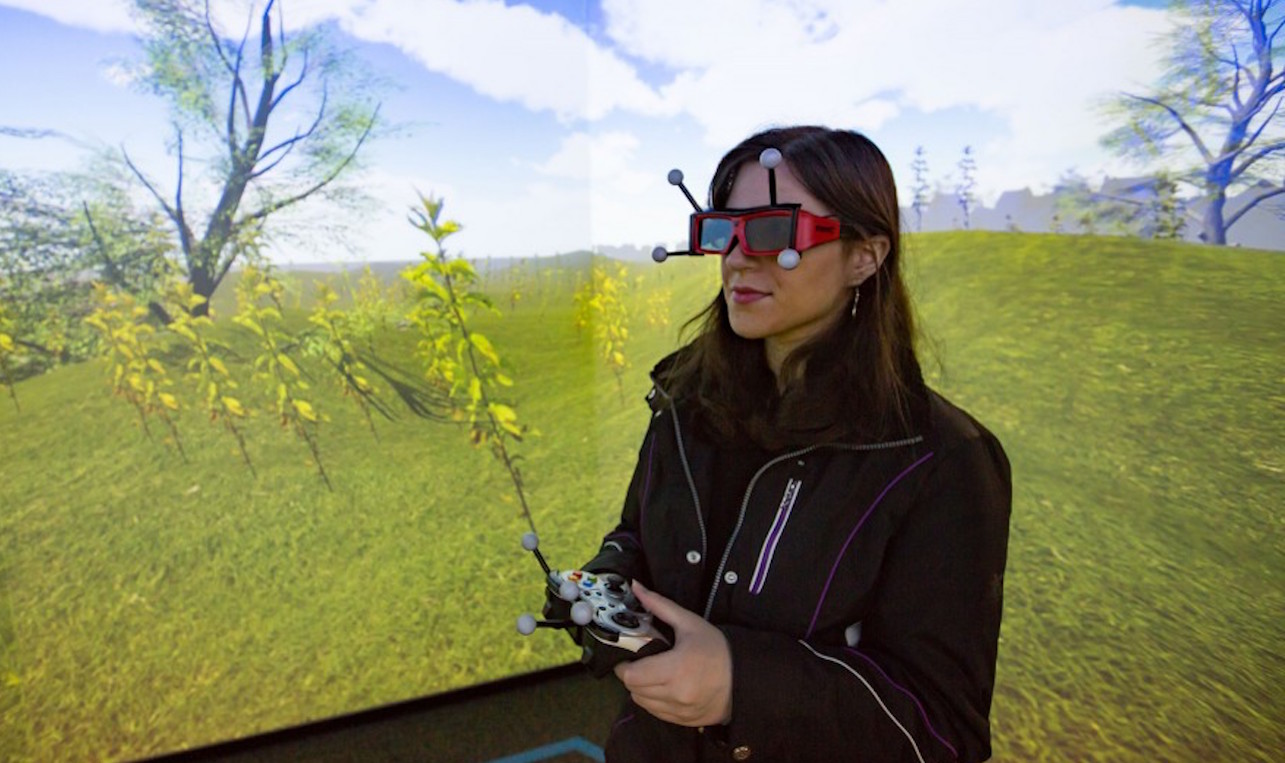
Research Labs and GRoups
Bioinformatics Research Group (BioRG)
Director: Giri Narasimhan
The mission of this research group is to work on problems from the fields of Bioinformatics and Biotechnology. The group’s research projects include Pattern Discovery in sequences and structures, microarray data analysis, primer design, probe design, phylogenetic analysis, image processing, image analysis, and more. The group builds on tools and techniques from Algorithms, Data Mining, Computational Statistics, Neural Networks, and Image Processing.
Center for Advancing Education and Studies on Critical Infrastructures Resilience (CAESCIR)
Director: Dr. Jason Liu
Florida International University’s Center for Advancing Education and Studies on Critical Infrastructures Resilience (CAESCIR) is funded by a Scientific Leadership Award granted by the United States Department of Homeland Security. CAESCIR aims to improve our nation’s critical infrastructures security and resilience via an integrated research and education framework that covers Homeland Security Science, Technology, Engineering, and Mathematics (HS- STEM) areas of interest in computer science, information technology, and cybersecurity.
CYBER SECURITY AND PRIVACY RESEARCH (CASPRLAB)
Director: Dr. Bogdan Carbunar
The Cyber Security and Privacy Research (CaSPR) Lab develops efficient solutions to ensure a trustworthy use of mobile and social networks. Problems of interest include the detection and prevention of online service fraud and abuse, cryptocurrencies, and mobile authentication.
Center for Cyber Infrastructure Education and Research for Trust and Assurance (CIERTA)
Director: S. S. Iyengar, PH.D.
Cyberspace, the ubiquitous collection of interconnected IP networks and hosts that have proliferated over the last two decades, has become the nervous system of the country. Healthy functioning of Cyberspace is essential for the proper operation of numerous critical infrastructures, such as telecommunication, energy, and transportation. It is also necessary to support the ever-expanding business infrastructure, including commerce and banking. The increasing reliance on Cyberspace has been paralleled by a corresponding increase in the variety, frequency and impact of attacks from a range of assailants. Both commercial companies and government agencies face continuous and increasingly more sophisticated cyber-attacks ranging from data exfiltration and spear phishing to sophisticated worms and logic bombs. The targets include not only computer information systems, but also the network communication infrastructure and power grids. Moreover, commercial companies and government agencies are themselves engaging in information gathering whose implications for privacy are disturbing.
Cognition, Narrative, and Culture Laboratory (Cognac Laborator)
Director: Mark A. Finlayson, Ph.D.,
The Cognac Laboratory pursues the science of narrative, including understanding the relationship between narrative, cognition, and culture, developing new methods and techniques for investigating questions related to language and narrative, and endowing machines with the ability to understand and use narratives for a variety of applications.
DaMRL: Data Management Research Lab
Director: Janki Bhimani
In the Data Management Research Lab (DaMRL), we research how to manage and make sense out of petabytes of data that is generated each day. We focus on improving the performance and reliability of evolving data processing, memory management, and data storage infrastructures. We work with emerging technologies to develop holistic solutions by designing novel resource management, scheduling, and capacity planning techniques for large-scale data-intensive systems. We strive towards designing a workspace to flourish creativity, improving the experiences of those underrepresented in computer science such as women and minorities. DaMRL is always looking for new candidates inspired to challenge the norms and lead the transformation of our society into data-age.
FIU Discovery Lab
Director: Dr. S. S. Iyengar
Dr. Ram Iyengar leads the Discovery lab and a team of CIS researchers who are currently performing advanced research in areas of intelligent systems, advanced security systems, autonomous mobile robots, and sensor networks, and smart grids. The Discovery Lab provides an infrastructure to promote collaborative research among universities and research organizations across the nation. In addition to addressing a comprehensive set of fundamental research topics, the Lab is pursuing commercialization, distinguishing itself from traditional research labs through its focus on translating research discoveries into technology transfer outcomes. At the same time, the laboratory provides students with the hands-on experiences they need to solve real-world challenges, develops student-led research opportunities, fosters students’ entrepreneurial skills, and trains a new generation of IT professionals who reflect the diversity of South Florida.
High-Performance Database Research Center (HPDRC)
Principal Investigator and Director: Dr. Naphtali Rishe
One of our research efforts is the High-Performance Database Research Center (HPDRC). HPDRC conducts research on such theoretical and applied issues as Internet-distributed heterogeneous databases, database design methodologies, database design tools, information analysis, multi-media databases, database languages, data compression, spatial databases, and data visualization. The Center also designs specific database systems for highly complex applications.
Industry/University Cooperative Research Center for Advance Knowledge Enablement (I/UCRC-CAKE)
Director: Rathindra (Babu) DasGupta, Alex Schwarzkopf, Rita Virginia Rodriguez
The National Science Foundation’s (NSF) FIU-FAU-Dubna Industry/University Cooperative Research Center for Advanced Knowledge Enablement (CAKE) was established to develop long-term partnerships among industry, academe, and government. The Center is supported primarily by industry center members, with NSF taking a supporting role in its development, evolution, and core funding. The Center’s mission is to conduct industry-relevant studies and deployments in the representation, management, storage, analysis, search and social aspects of large and complex data sets, with particular applications in geospatial location-based data, disaster mitigation, healthcare, transportation, and town planning.
Integrated – Computer Augmented Virtual Environment (I-CAVE)
Director: Dr. Jason Liu & Prof. Shahin Vassigh
Integrated Computer Augmented Virtual Environment (I-CAVE) is an instructional and research visualization facility located on FIU’s Modesto Maidique Campus. This facility can be used for both undergraduate and graduate instruction in a variety of fields across the natural and social sciences, humanities, and professional programs.
Listening and Engaging with Alternative Research Narratives in Computer Science (LEARN-CS)
Director: Dr. Monique Ross
LEARN-CS is dedicated to exploring the experiences of those underrepresented in computer science in order to broaden participation in computing fields. Members of the LEARN-CS research team leverage rigorous education research methods to better understand the factors that contribute to and detract from the engagement and persistence of women and underrepresented minorities in computer science (and related fields) this includes but is not limited to pedagogical practices, climate and culture, and the complexity of race and gender. LEARN-CS is always looking for those inspired to challenge the norms in computer science to make CS accessible to ALL.
Modeling and Networking Systems Lab (ModLab)
Director: Dr. Jason Liu
A common research theme of ModLab is to develop efficient and effective modeling and simulation techniques for studying computer systems and computer networks, in particular, high-performance computing (HPC) systems and large-scale computer networks.
A Parallel Computing and Data Science Group
Director: Prof. Fahad Saeed, PH.D.
We are an interdisciplinary research group developing high performance computing algorithms focusing on computational biology. We solve big data problems using variety of high-performance algorithms, machine-learning and deep-learning strategies.
Software Testing and Research Group
Director: Peter Clarke
STRG is comprised of MS and Ph.D. students and associated researchers under the guidance of Dr. Peter Clarke. Investigate new ways to perform automated software testing that use new research techniques and methods from AI and ML. Explore how model-driven engineering techniques can improve software testing. Develop a cyberlearning platform to support computer science education by using various learning and engagement strategies. Collaborate with companies and researchers to find solutions to previously mentioned objectives.
Sustainability, Optimization, and Learning for InterDependent networks laboratory (SOLID Lab)
Director: Prof. M. Hadi Amini
Sustainability, Optimization, and Learning for InterDependent networks laboratory (solid lab) is an interdisciplinary research group bridging the gap between theory and real-world. Resilient and secure operation of interdependent networks requires highly efficient computational algorithms to deal with large-scale optimization, learning, and ultimately decision-making problems. Our goal is to leverage our solid mathematical background to develop novel algorithms tailored for various engineering applications. At the SOLID lab we aim at solidifying critical infrastructures leveraging computing and information sciences, i.e., we are connecting Computer Science and Engineering worlds!
Systems Research Laboratory (SyLab)
Director: Raju Rangaswami
Our goal at the Systems Research Laboratory (SyLab) is to conduct research in the area of Operating Systems. While we are interested in all problems related to Systems, lately, we have been developing new capabilities for storage systems and virtualized data centers. Some of the capabilities that we have developed recently address energy, performance, and self-management for storage systems and resource isolation and performance guarantees within virtualized systems.
Telecommunications and Information Technology Institute (IT2)
Director: Niki Pissinou, Ph.D. and S. S. Iyengar, Ph.D.
Funded by the State of Florida, industry and federal government, the Telecommunications and Information Technology Institute (IT2) is a unique hub for research, technology transfer, and education at the graduate and undergraduate levels. With a sustainable growth model as the basis for its development, IT2’s portfolio now boasts cutting-edge research, active alliances with industry and unique academic programs. It is now a leading resource for education, training, research and technology development in the United States of America and abroad.
Virtual Intelligent Social AGEnts Lab (VISAGE)
Director: Christine L. Lisetti, Ph.D.
Our long-term research goal is to create engaging, virtual interactive social agents that can help humans in a variety of contexts by interacting with them in innovative ways, through natural expressive multi-modal interaction. We conduct basic research at the intersection of the fields of human-computer interaction (HC), affective computing, human-centered artificial intelligence (AI), and virtual reality (VR) to discover design principles for VISAGEs. We then use these design principles to conduct applied research by building VISAGEs that can help humans in the variety of roles and domains where good social communication is of the essence, such as cybertherapy, cyberlearning, and social robotic.
Research Experiences for Teachers (RET)
Cyber-enabled technologies provide opportunities for teachers of science, math, and technology to work with faculty at Florida International University. Through a six (6) week program, teachers participate in technical and educational research as part of a research community.
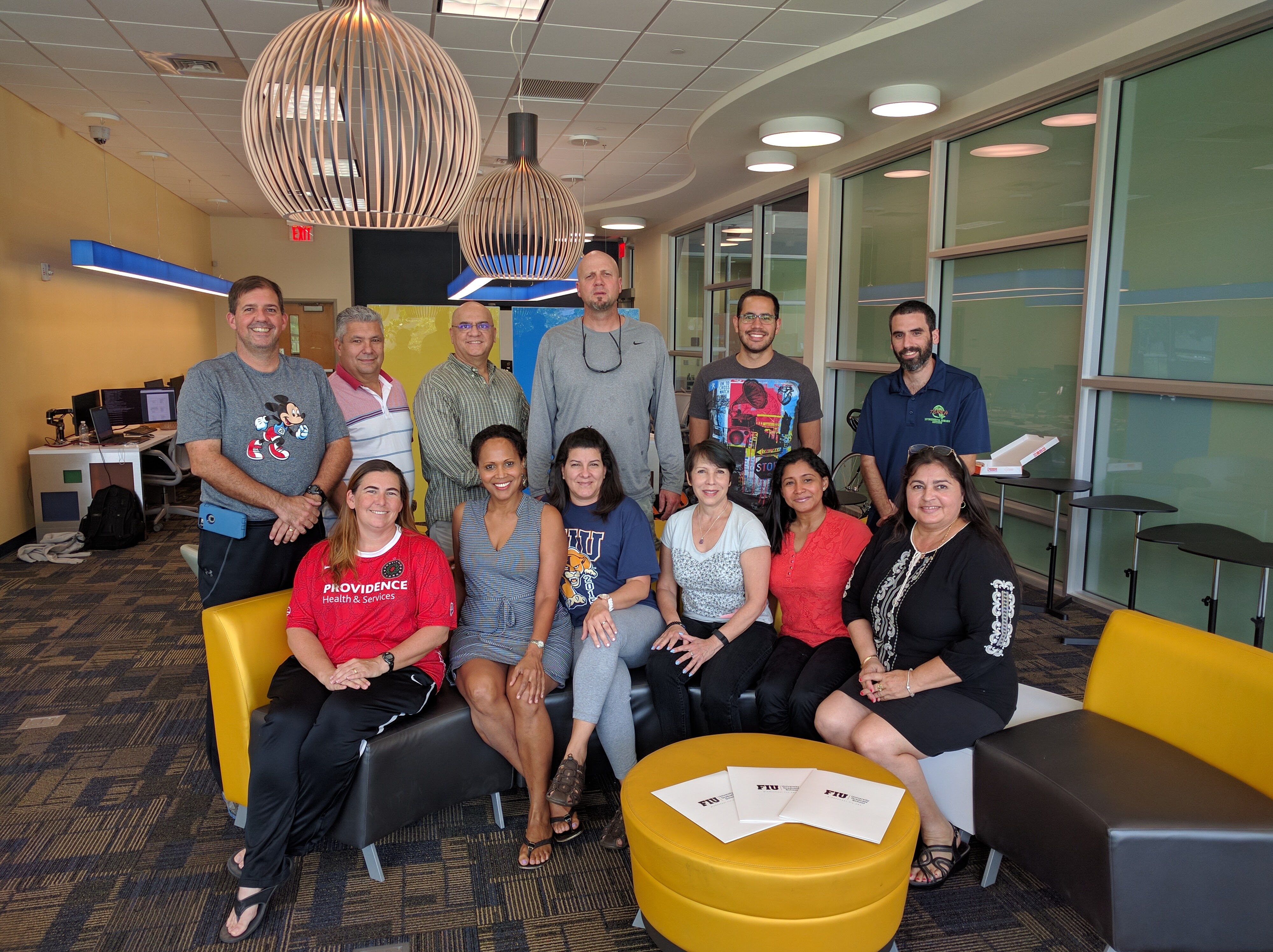
Trajectory Privacy Preservation in Mobile Sensor Networks
(Advisors: Dr. Pissinou, Dr.Kim)
Mobile sensor networks are finding rapidly growing applications in a wide range of data collection applications, such as natural disaster forecasting, health condition monitoring, military reconnaissance, and traffic monitoring. Meanwhile, privacy is becoming an indispensable concern of these applications. This project targets an important but mostly untouched privacy issue: trajectory privacy preservation in mobile sensor networks. Mobile sensors, carried by users or vehicles, communicate with peer nodes and the base station through wireless media continuously. Therefore, trajectory information not only indicates the movement patterns of the sensors but also reveals the personal preferences and habits of users. Trajectory privacy invasion could lead to several types of risks for users, including personal safety, consuming profiling, and interference attacks.
Natural Language Processing and Computational Linguistics
(Advisors: Mark A. Finlayson)
Prof. Mark Finlayson’s work intersects artificial intelligence, computational linguistics, cognitive science, and the digital humanities. His research focuses on the science of narrative (as a language object), including understanding the relationship between narrative, cognition, and culture, developing new computational methods and techniques for investigating questions related to language and narrative, and endowing machines with the ability to understand and use narratives for a variety of applications. Prof. Finlayson seeks highly motivated REUs and RETs to address important problems in this area, including building automatic natural language processing tools for extracting syntax and semantics; building user-facing tools for language corpus annotation, and collecting richly annotated corpora of stories.












